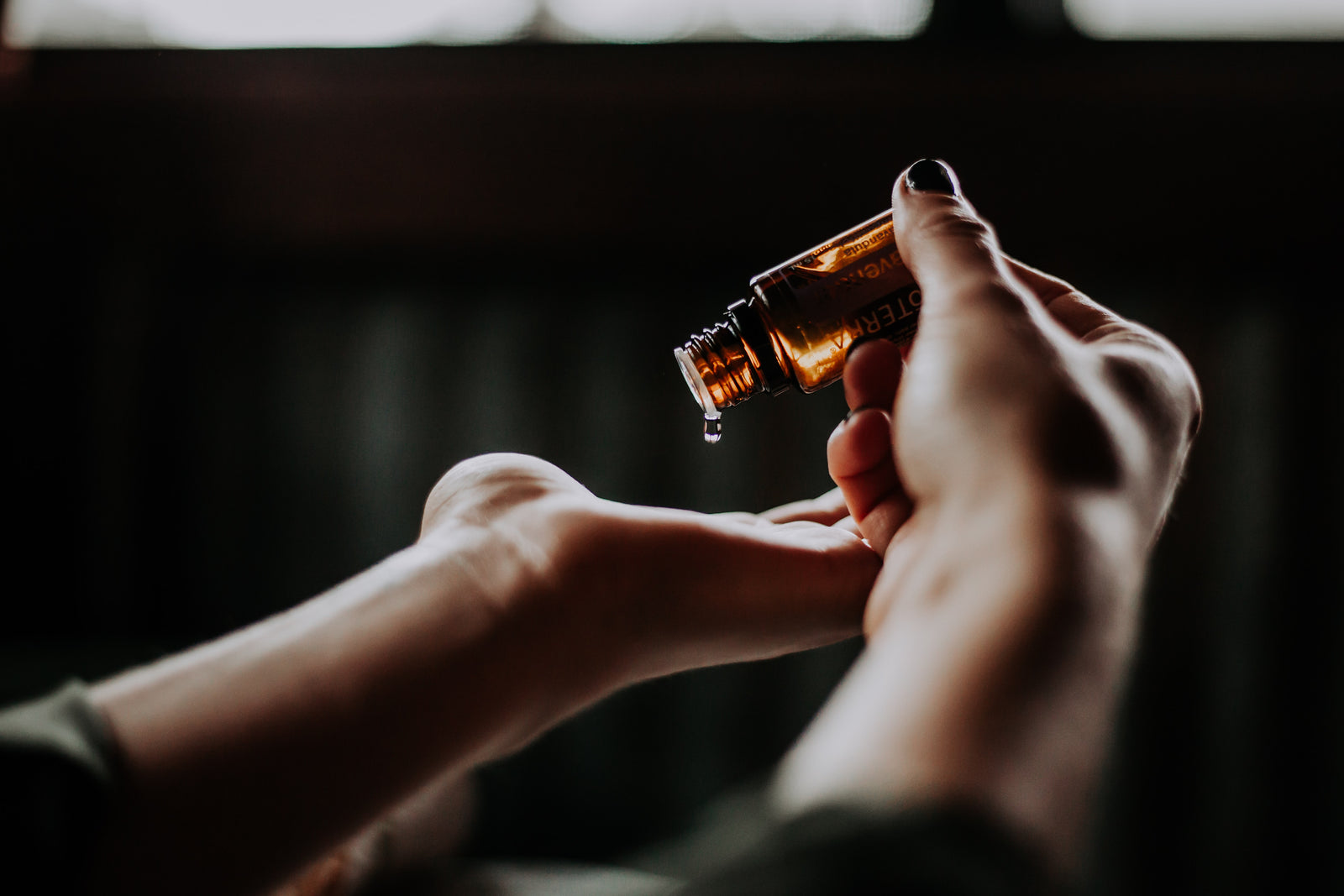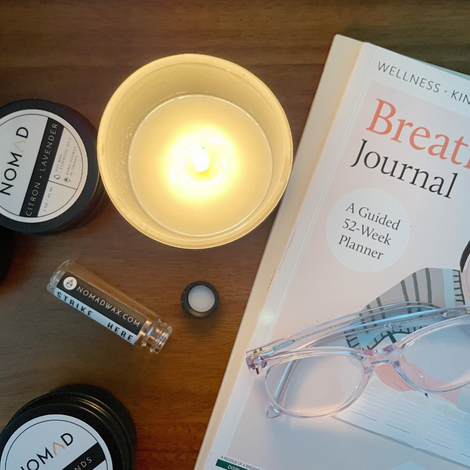What are phthalates?

You see a lot of candle, fragrance and beauty brands talking about why they use a certain wax, or what kinds of fragrances they use, but aren't sure why or if it should matter to you. We've got the answers for you!
Let's talk about phthalates and why keeping them OUT of our Nomad Wax Co. products is an important part of our commitment to clean and healthy scent.
As I mentioned here, when I learned what phthalates were and how they affected the body, I began minimizing and eliminating my exposure to them. Here's a simple overview about what they are and why it matters.
What are phthalates?
Phthalates (THAL-ates) are chemicals that make plastic soft and flexible and are added to products that we use every day. They are found in scent, cosmetics, personal care products, detergents, adhesives, plastic pipes, medial tubing + supplies, insecticides, building materials, food and more. Phthalates are not a single chemical, but a whole family of chemicals. Some have been banned in particular products, but others are still allowed. They fall into a category of chemicals known as Endocrine Disrupting Chemicals, or EDCs. Some EDCs that you may have heard of include PCB, DDT and lead.
Why are phthalates bad?
As an EDC, phthalates are bad because the get into our bodies through the foods we eat and the everyday materials we use, such as shampoo, perfume and candles. Nearly all Americans have phthalate byproducts in their urine, according to Ami Zota, assistant professor of environmental and occupational health at George Washington University (webMD.com)
Researchers and medical professionals are still learning about exactly what phthalates in the body do to us, but links to these chemicals and the growing rates of chronic illness are clear. Phthalates affect different people in different ways, and can even interact with other chemicals in the body in ways we don't fully understand yet. Those sensitive to chemicals, unborn babies and children (especially males), teens in puberty and adult women tend to be the groups most affected by phthalates. Phthalates are bad because they can disrupt the reproductive and endocrine systems, irritate skin and eyes, cause developmental delays, cause dizziness and nausea, and potentially cause cancer.
What is endocrine disruption?
Endocrine disruption (from chemicals) occurs when a chemical in the environment mimics, blocks or interferes with hormones and their normal actions in the body.
Why should I care about endocrine disrupting chemicals, such as phthalates, and endocrine disruption in general?
When our body systems don't function as biologically designed health problems soon follow. From chronic illnesses to reproductive issues such as infertility, to cancers, the scope of damage from endocrine disrupting chemicals, such as phthalates, is vast.
Some people are more sensitive to these chemicals and experience side-effects that diminish quality of life or cause chronic illness. It's important to care about these chemicals because they are present everywhere, can harm every organ in your body and because regulations don't always match what's actually safe for humans, especially if you fall into one of the more sensitive groups. It's also important to minimize EDCs for babies, children and pubescent teens, because it affects the normal development of their bodies and reproductive systems.
In 2018 the Endocrine Society analyzed more than 1,800 scientific studies and found clear evidence showing how EDCs disrupt our hormones and harm our health. They are linked to male and female reproductive disorders, obesity, diabetes, neurological problems, immune and thyroid disorders, osteoporosis, Parkinson’s disease, and hormone-related cancers. Learn more by visiting endocrinesociety.org
The Bottom Line on phthalates
Eliminate EDCs, including phthalates, wherever you can, from the products you use, to the food you eat. Buy products labeled as phthalate-free. Closely monitor + minimize consumption of fast foods, dairy and meats (whose packaging often is high in phthalates) or buy products using non-plastic packaging.
-----------
The good news for you is that many makers and product manufacturers have become more aware of these harmful chemicals and are intent on leaving them out of their products. However, be sure to read labels and ask questions. Many big-box brands of candles, body + home scent products are NOT phthalate-free, or free of other harmful toxins and EDCs. The ingredients necessary to make healthy, clean candles are expensive, therefore the finished product tends to cost more. This often doesn't align with the low-cost stores' price points. If a product is dirt-cheap, there is a good chance that it contains toxic ingredients which could wreak havoc on your body. It was also likely made in a factory overseas, where regulations differ, child and indentured labor is commonplace, and clean ingredients + sustainability are far from a concern.
The Nomad Approach
Our approach to phthalates, EDCs and clean, healthy products is straightforward:
We use non-toxic, natural ingredients.
- No Phthalates
- No Parabens
- No Lead
- No Sulfates
We choose certified organic, vegan + eco-friendly ingredients whenever available.
- Organic flavor oils + scent oils
- Vegan + plant-based ingredients
- Sustainably-harvested materials
- Cruelty-free always
We use long-lasting, refillable product containers such as glass and metal. Occasionally plastic packaging is required, and we source containers that do not contain EDCs.
- Reusable
- Recyclable
- Compostable
- No phthalates, BPE, lead, or EDCs
If there is an option for a lower-chemical, plant-based, more natural or more sustainable ingredient or package, we will choose that option. We are always re-evaluating our products and making improvements that make them safer for people, pets and planet. 🖤
----
Cover Photo by Christin Hume on Unsplash




